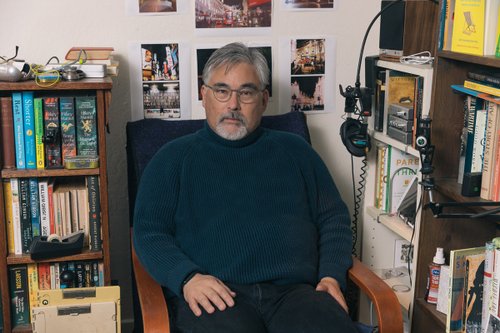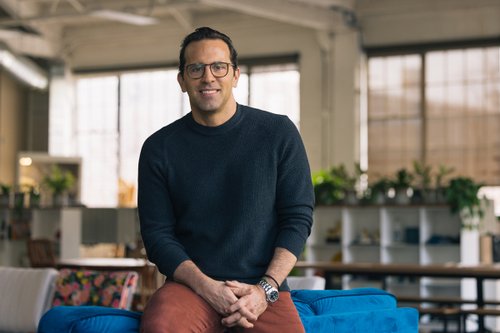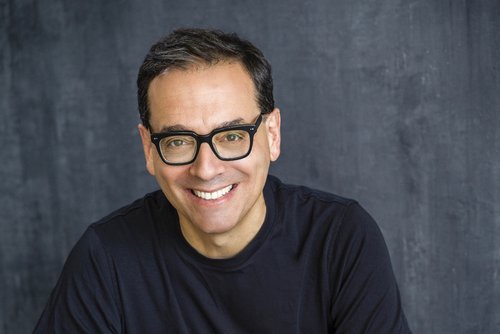How to retire at 30 without being a millionaire
18 mai 2021
5min

They are 40, 35, or even just 30 years old and have simply decided to stop working. No, they didn’t make this decision on a whim. In fact, the opposite is true. Ever since they started to work and to earn wages, they have been carefully preparing to make their exit––or to retire early––with solid savings and investment plans so they can live off their pensions. The objective is clear: to find a saner way of living away from the consumer society and to enjoy life without conforming to societal pressure to keep working and earning more and more. While this form of freedom may seem like a dream, it can have its drawbacks. Here we take a close look at “early retirement”.
In our society, retirement conjures up the idea of slowing down after a lifetime spent working. That is true for many people, but only for some. Some have decided not to wait until they are in their sixties to end their careers. “Early retirement,” which has been a popular concept In the United States since the mid-2000s, is not just about independently wealthy billionaires who have hit the jackpot by selling their start-ups, but about ordinary workers who, with a great deal of organization, planning and hard work, are heading for financial independence. This type of retirement isn’t about spending their days lazing around slumped in front of the TV or having one drink after another in a bar. It’s about taking advantage of every moment in life, of every opportunity and using the time to indulge their passions. In the United States, many people have taken the plunge, such as Justin McCurry, Mr. Money Mustache, Mr. Tako, and JW Brooks, founder of The Green Swan.
Who are these retired thirtysomethings?
“Beyond the basic needs of shelter, food, and safety; humans want to have friends, mates, and desire to be acknowledged by others. To achieve that, most individuals follow social norms and conform to societal pressures,” writes Mr. Tako on his blog, Mr. Tako Escapes, pointing out that work “allows them to ‘fit’ into their social ‘group’ and play their part in the capitalist machine”. While many people are happy with this arrangement, he feels that these norms prevent him from feeling fulfilled in other ways. He readily admits that he has “never been very comfortable with being a conformist”. Starting at the age of 20, he set about trying to achieve financial freedom.
“I didn’t work on Wall Street or make millions in stock options,” he writes. “I didn’t flip real estate and sell at exactly the right time before the 2008 crash . . . I didn’t inherit any money. I didn’t sell a business for millions.” Instead, he says, he built up his wealth day by day, by working hard and making the right financial decisions. At the height of his career, Mr. Taku was earning just under $100,000 a year and going on holidays with his family to Australia, Japan, and Mexico, yet still managing to save at least half of his income. In 2015, he and his wife were worth more than $2 million, a sum he felt was sufficient to escape the professional world for good. By keeping a close eye on their every expense and investing their money wisely, the couple and their two children are now enjoying their retirement.
Mr. Taku is not the only one to have leaped. After studying engineering and computer science in Canada, but also after a decade in the tech industry, Peter Adeney, better known as Mr. Money Mustache, also retired from the professional world. Like Mr. Taku, he has not received an inheritance or stock options, nor has he picked a winning lottery ticket. He made his dream come true by saving half of his income and then putting his money into funds and real estate. Mr. Money Mustache says that the middle-class lifestyle in the US is wasteful. “If you can save half your income starting at 20, you can retire at 37,” he said. He adds that by saving 75% of your income, it is even possible to end your career after seven years of activity.
“To pull this off, you need to focus on what really makes you happy rather than always wanting more luxury goods or being tempted by the products in TV advertisements. Happiness is many things, but it doesn’t involve new cars or a nicer handbag,” he said. “To save money, live close to your job, don’t borrow money for a car, ride a bike whenever possible, cancel your TV subscription, stop wasting money in fancy grocery stores, don’t get the latest mobile phone, learn to use your hands and teach yourself to be optimistic. Do this and half of your expenses will disappear.”
An ascetic life
Retired since 2016, Brandon said he never wanted to stop working, but always wished he had more time and more freedom to focus on the essentials. “This way, I am more productive and my impact on the world is greater,” he told Business Insider, a magazine. To achieve his goals, the 36-year-old retired engineer lived an ascetic lifestyle for many years. He is very organized, setting up a financial management spreadsheet––which is available on his blog––that he rigorously fills in every month. It’s all there: his current and savings account balances, details of his retirement plans, the value of his house, and even his daily expenses.
By publishing all this data and giving readers of his Mad Fientist blog practical advice on how to reduce expenses and make investments work for them, he shows that with a little willpower, this life can be accessible to everyone. JM Brooks, the blogger behind the Green Swan website, said: “There is always something to optimize.” He gets haircuts from his wife, for example, but denies that his early retirement deprives him of any of the little pleasures or extras, not on his list. He has given up only the things or activities that don’t matter to him. “But, I am determined to spend my hard-earned money on the things I care about, after finding the best possible price of course,” he said.
That’s the complex element of these young retirees: they’re far from being money-averse outsiders, quite the contrary. In his blog, Root of Good, Justin Mc Curry acknowledges that money is the source of all material goods. Mr. Money Mustache admits to making money through his blog by ad revenue and product placement. Money is also one of the main topics on the Young Retiree website, maintained by Canadian Jean-Sébastien Pilotte.
A newfound freedom?
Pilotte said: “I like money not for what it allows me to buy, but for the freedom to do what I want. More than anything, I want to be free to live life to the fullest, which means having as little as possible to maintain–– house, garden, swimming pool, car––and having as much time as possible for life-enriching experiences: travel, personal projects, seeing friends, working out, quality time with family.”
While it is easy to understand the desire to get rid of anything superfluous so as to focus solely on the essentials, what all these young retirees also have in common is that they do not reject the value of work, which they consider to be an essential part of achieving their goals. But they refuse to consider it as an unchangeable constraint that can’t be avoided. In a blog from 2015 entitled “Great News – Early Retirement Doesn’t Mean You’ll Stop Working,” Mr. Money Mustache’s message is clear: retirement does not mean stopping all paid work, but means being able to choose what he does and doesn’t want to do, without worrying about the financial aspects. As his investments and savings are sufficient to support himself, he accepts only work that really interests him and always asks himself the question: “Would I accept this job if it were volunteer work?” If so, he goes for it. If not, he refuses, considering that it would put him back into the vicious circle of traditional working.
These young retirees are nonetheless realistic and think that their lifestyle is not for everyone. “How can an American family with two teachers, each earning $60,000 a year and already struggling to get by, easily put aside $5,000 each month?” said, Mr. Money Mustache. If we can’t follow their lead entirely, reading their stories at least reminds us that other ways of living are possible.
Translated by Kalin Linsberg
Photo: Welcome to the Jungle
Follow Welcome to the Jungle on Facebook, LinkedIn, and Instagram, and subscribe to our newsletter to get our latest articles every day!

Inspirez-vous davantage sur : Inspirations pour s'épanouir au travail

Leading without limits: How to shine as a leader, title or no title
Lab expert Ginny Clarke explores how being a leader isn't just reserved for execs ...
09 avr. 2024

How our burnt-out society can finally get some rest
Alex Soojung-Kim Pang unveils transformative strategies for slowing down our fast-paced lives.
19 mars 2024

Green influence: Championing sustainability from any desk
Yes, you too can turn your job into a catalyst for change.
07 mars 2024

Why the secret to career fulfillment lies in finding the right fit
Organizational psychologist André Martin explains it all.
06 févr. 2024

Why having regrets is healthy... and powerful
Daniel Pink, author of The Power of Regret, tells us to embrace the mistakes of our past
28 juin 2023
La newsletter qui fait le taf
Envie de ne louper aucun de nos articles ? Une fois par semaine, des histoires, des jobs et des conseils dans votre boite mail.

Vous êtes à la recherche d’une nouvelle opportunité ?
Plus de 200 000 candidats ont trouvé un emploi sur Welcome to the Jungle.
Explorer les jobs